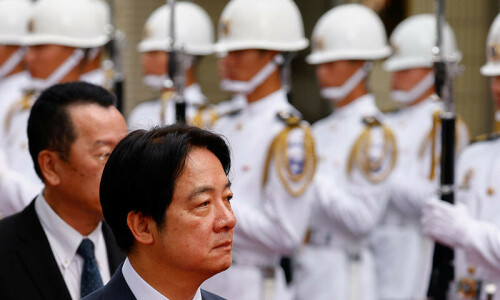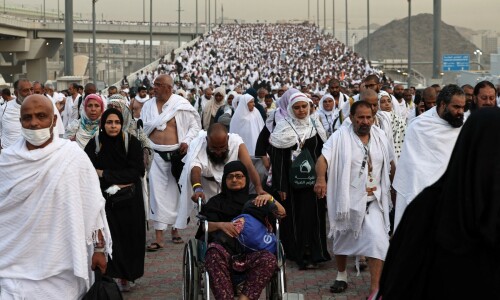
PARIS: North Korea on Tuesday staged its third and most powerful underground nuclear test yet in defiance of world powers.
Pyongyang, which claims the status of nuclear power, is suspected of having several nuclear bombs, and of carrying out tests in a bid to miniaturise the devices.
North Korea originally signed the Nuclear Non-Proliferation Treaty (NPT), but resigned from it in 2003 amid controversy about its nuclear ambitions. It carried out previous detonations in October 2006 and May 2009.
Following are key facts about the other countries which are either known to, or believed to, possess nuclear weapons, the most devastating weapons of mass destruction ever created:
The United States, the Soviet Union, Britain, France and China all obtained the weapons before 1970, when the NPT came into force.
When the Soviet Union ceased to exist in 1991, Russia took over both its arsenal and its responsibilities under the treaty.
Under the NPT, the five powers – which are also the five veto-wielding permanent members of the UN Security Council – are alone permitted to possess nuclear arms, although they are expected to proceed towards disarmament.
India and Pakistan have been officially-declared nuclear weapons powers since 1998. Neither has signed the NPT.
Israel, which has also not signed the treaty, is widely believed to have an arsenal of between 100 and 300 nuclear bombs. However, it has refused to ever officially confirm or deny it has nuclear weapons.
Iran, a signatory of the NPT, has mastered uranium enrichment for what it says is a purely civilian nuclear effort aimed at generating electricity.
However Western countries, led by the United States, accuse it of seeking nuclear weapons, and the United Nations has imposed a raft of sanctions.
A handful of other states have been accused of harboring ambitions to acquire nuclear weapons. They include Egypt, Nigeria and Syria, which are all NPT signatories, plus Taiwan which has vowed to abide by the treaty but cannot officially sign it for diplomatic reasons.
Several countries have officially given up nuclear weapons after having either possessed them or worked on developing them. They are South Africa, Argentina, Brazil, Kazakhstan, Belarus, Ukraine and Libya – all signatories of the NPT.











































Dear visitor, the comments section is undergoing an overhaul and will return soon.